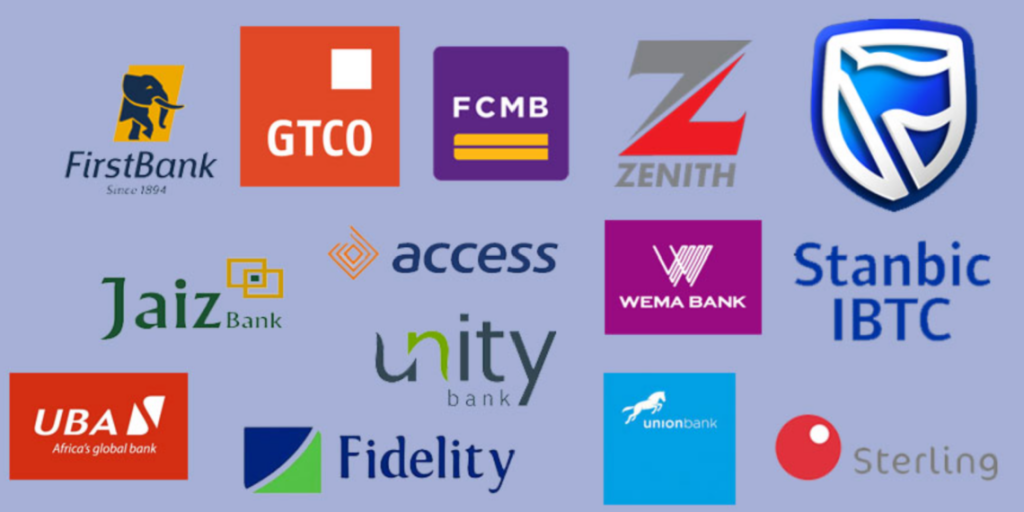
Nine publicly listed commercial banks paid a sum of N166.4 billion as a deposit insurance premium to the NDIC in 2023, 29.3 per cent higher than the N128.7 billion recorded in the previous year.
Total bank deposits also rose by 69.9 per cent year-on-year from N49.59 trillion in 2022 to N84.29 trillion in the review year.
The amount paid as deposit insurance premium by the nine banks under consideration in 2023, represented about 0.197 per cent of total deposits in contrast to 0.26 per cent in 2022.
Nine publicly listed commercial banks paid a sum of N166.4 billion as deposit insurance premium to the Nigerian Deposit Insurance Corporation (NDIC) in 2023, a 29.3% increase compared to the N128.7 billion recorded in the previous year.
This is following a 69.9% surge in total bank deposits, which rose from N49.59 trillion in 2022 to N84.29 trillion in the review year.
Hence, the amount paid as a deposit insurance premium by the nine banks under consideration represents about 0.197% of total deposits in contrast to 0.26% in 2022.
This is according to data extracted from the audited financial statements of the banks as published on the Nigerian Exchange (NGX).
Owing to the importance of the financial services sector, involving public funds, there is a need for buffers to protect public funds in case of bank failure or liquidation, hence, the need for deposit insurance.
Deposit insurance is one of many layers put in place to protect public funds and ensure the stability of the banking sector. Some others include the bank resolution fund and the AMCON Sinking Fund.
Deposit Insurance Premium is a statutory payment by deposit-taking banks that ensures that NDIC as an insurer guarantees the payment of deposits up to the maximum limit (Now N5 million) in accordance with its statute in the event of failure of an insured financial institution.
Typically, banks with the largest deposits pay the most premium to NDIC in terms of absolute numbers. However, some banks pay higher relative to their deposits based on a pricing mechanism.
Banks are charged based on the Differential Premium Assessment System (DPAS), which differentiates premiums payable by the financial institutions based on their respective risk profile.
According to the NDIC, the risk-adjusted deposit insurance pricing is anchored on the premise that the cost of deposit insurance premium and the coverage level should neither over-burden the banking system nor be largely subsidised by public funding.
The DPAS pricing template uses two primary stages of deposit insurance pricing, the first being the determination of a Base Premium Rate for banks in the best risk category and the determination of add-ons based on the individual bank’s risk profile using both quantitative and qualitative factors.
The add-ons, which is a function of the Composite Risk Rating Computation, take into consideration six parameters with varying weights. That is; Capital Adequacy (20%), Asset Quality (15%), Earnings and Profitability (20%), Liquidity and Fund Management (15%), Sensitivity to Market Risk (5%), and Management and Corporate Governance (25%).
The commercial banks based on their insurance premium-to-customer deposit ratio for 2023. The ratio is an important metric, as it shows the level of risk assigned to each bank’s deposit collection. It is calculated by dividing the deposit insurance premium by aggregate customer deposits as of the period.
The higher the ratio the more risk a bank is perceived to carry. It is worth noting that the deposit risk ratio of all the banks reduced in 2023 compared to the previous year.
FBN Holdings Plc, the Group Holding company of First Bank Nigeria Limited paid a sum of N28.76 billion as a deposit insurance premium in the review year to the NDIC, a 7.4% increase when compared to the N26.77 billion paid in the previous year.
Meanwhile, total deposits jumped by 52.4% year over year to N12.47 trillion in the same period.
This translates to a deposit-risk rate of 0.23% to rank fifth on the list of nine banks. This is however significantly lower than the 0.33% printed in 2022.
FCMB paid N8.58 billion as a deposit insurance premium for the 2023 financial year, which represents a 35.4% increase from the N6.34 billion incurred in the previous year.
In the same vein, deposits rose by 62.5% from N2.07 trillion to N3.36 trillion as of the end of December 2023.
This means that the bank’s deposit risk dropped from 0.31% in 2022 to 0.26% in the review year.
Wema Bank recorded a deposit insurance premium of N5.15 billion in 2023, a 21.5% increase from 2022’s N4.23 billion.
Similarly, total deposits rose by 58.8% from N1.19 trillion to N1.88 trillion as of the end of 2023. Hence, Wema Bank’s deposit risk, that is the insurance premium-to-customer deposit ratio dropped from 0.36% to 0.27% during the period.
Fidelity Bank paid N11.13 billion to the NDIC as a deposit insurance premium in 2023, surpassing the N8.24 billion paid in the previous year by 15%.
In the same vein, total deposits rose by 55.6% year-on-year to N4.01 trillion from N2.58 trillion recorded as of the end of 2022.
This brings the deposit risk ratio to 0.28%, a decline from 0.32% recorded in the previous year.
Stanbic IBTC Plc, the holding company of Stanbic IBTC bank recorded the highest insurance premium-to-customer deposit ratio in 2023 with 0.29%, which however declined from 0.4% in the previous year.
Notably, the company paid a total of N7.97 billion as deposit insurance premium in the review year, from N6.93 billion reported in the previous year, while its total deposits rose by 57.3% from N1.74 trillion to N2.73 trillion over the same period.







